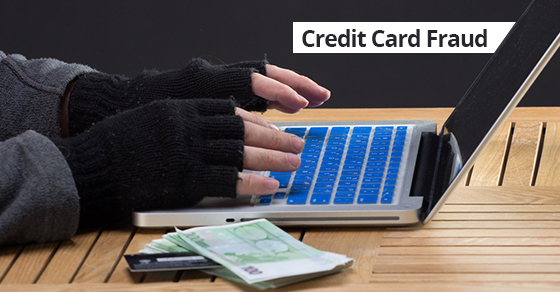Although credit cards are generally very safe and companies can automatically detect bizarre activity, credit card fraud can occur, albeit to only a small percentage of Canadians (0.77%), but it results in a large loss of money. In 2010, for example, $365,916,944 was lost due to credit card fraud.
Some forms of credit card fraud, such fraud that occurs over the telephone and Internet, are beginning to rise due to the increased presence of microchips in credit cards, which has resulted in criminals turning to alternate methods. On the whole, however, these microchips make it very difficult for criminals to make duplicates and because of this, credit card fraud has largely decreased in Canada (by 68%) since they were introduced in 2008. Those who are found guilty of credit card fraud may have to pay a fine, undergo probation and even jail time. Fraud over the amount of $5,000, for example, can result in 10 years in jail, according to the Criminal Code of Canada.
What is Credit Card Fraud?
Credit card fraud occurs when an individual uses someone else’s credit card without the permission of the authorized cardholder. This can occur several different ways, including a lost or stolen credit card that is then used to make purchases. Alternatively, you might have your credit card information stolen and have it used to make an online purchase (this is referred to as “card not present” fraud). In other cases, the same information could be used to create a counterfeit card.
How to Prevent Credit Card Fraud
There are several precautionary measures to take in order to prevent credit card fraud. For example:
- Report a lost or stolen card as soon as possible. Your credit card provider will cancel your card and give you a new one.
- Regularly check your credit card statements for any strange activity.
- Never give your credit card information out over the phone or the Internet unless you know it is with a company you can trust. Be on guard for scams – for example, a bank would never call and ask for your credit card information (like your credit card number) over the phone or even e-mail (even if you are directed to a website that looks identical to your online banking website).
- Keep credit cards in a safe place. While travelling, for example, keep them in a hotel safe.
What To Do If You are a Victim of Credit Card Fraud?
- Contact Credit Card Provider Immediately. If you have been a victim of credit card fraud, you might notice unfamiliar charges on your credit card. The first step is to immediately contact your credit card provider via the telephone number provided on the back of your card.
- Contact Your Credit Bureau. Have them attach fraud alerts on all of your credit reports.
- Notify the Police.
- Report it to the Canadian Anti-Fraud Center. Contact them by calling 1-800-495-8501

